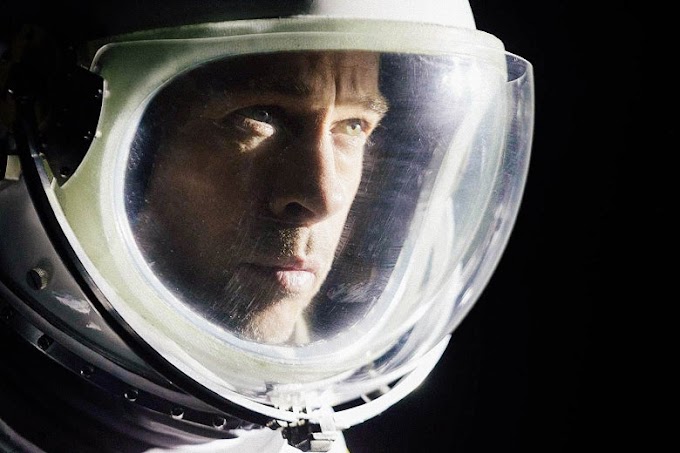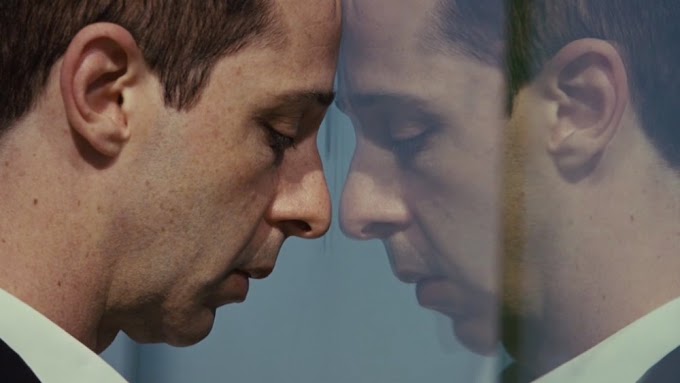
A story about a man in space, sure, but not just a story about a man in space. Rather, Ad Astra is an existential thrill ride about what it means to be a man in space.
And what does it mean really? For Brad Pitt’s Roy McBride, directed by James Gray, it means a life of striving and seeking, of searching for something. Ostensibly, Roy is searching for his absent father, a man who left Earth and his family to conquer space. Which brings us to the question; what was McBride Senior seeking? We can make a good guess that it’s about legacy and fame, but largely it’s the ambition to discover life outside Earth. McBride Junior never knew his father but the world knows the old man as a hero, as someone who sacrificed his life for the greater good of humanity.
However, is a hero really a hero if he leaves his son and his wife? Ad Astra explores this dynamic through the character of Roy McBride's maybe-girlfriend. On Earth, Roy is of a singular mind, focused on the job. He doesn’t see those around him; he lives as if in a dream. That his girlfriend is of no consequence to Roy is shown by the camera’s refusal to shift focus, so that even to the audience, she is no more than a blurry image. Still, we and our protagonist venture forward; there is no time to waste on human endeavours and human emotion.
As the film develops, we loop around and begin to see the likeness between son and father; we notice the equal discontent that shrouds their dual perceptions under the guise of rationalism. Pitt’s character’s desire to find answers take him to the darkest reaches of space and to the brink of human technology. While there, he sees truth through lies. His father is not the hero he thought; the people he works for have their own fierce agenda; and, his life is just an inconsequential blip in darkness, ungrounded by any human connection.
A cinematic darkness seeps into our souls and residual fear remains, expressing its presence through rage. An encounter with a vengeful lab ape is the first instance of overt anger in the film and it jolts the audience to its core. We are suddenly confronted with the first relatable sign of emotion and it comes from a terrified animal who has no idea of where he is and what he’s doing. In a brief moment of honesty, Roy relates.
At this point it must be said that Ad Astra is a movie about fathers and sons exclusively, it’s about concepts of masculinity and ego, written as it is by James Gray and Ethan Gross. Our trip to space is a metaphor for a trip through the male psyche. Until this moment, Roy has not once addressed his feelings and his heart rate has never once risen above its baseline. The bloodthirsty ape makes our lead character confront this. Recording his mental health log after the incident, Roy admits; ‘I’ve seen that rage,’ he says, ‘I understand it’. He’s concerned that his internalised fear (of what, it’s not certain) has in fact morphed into anger, exactly like his father.
From this moment on Roy seems to become more and more aware of his own father’s flawed mortality and, as a result, his own. We enter deep space, a place where there is nothing to distract the wandering mind. Roy heads deeper into the void, in one instance pulling futilely on a rope – deeper into darkness, with no foreseeable end. We wonder why he continues but then we realise it’s not fear that leads him onwards; it’s hope, love for his father and a desire to see him again. Despite difficulty weighing down on him, Roy maintains a desire to live and in that desire we find beauty and truth.
In an Interview with The Verge, director and co-writer James Gray puts it simply. "What we're trying to say is, there's nothing out there. Nothing is going to save us. And if this is all we've got, what does that mean? If those answers are not out there for us, then human connection is everything." Instead of being a depressing thought, I think Gray means it to be hopeful. In searching for connection with extra-terrestrial life and his estranged father, ironically Roy isolates himself from reality. The answers he seeks are simpler and purer than he wants to allow. Futile or not, human connection and the will to live is all we’ve got so it’s best to embrace it.








0 Comments